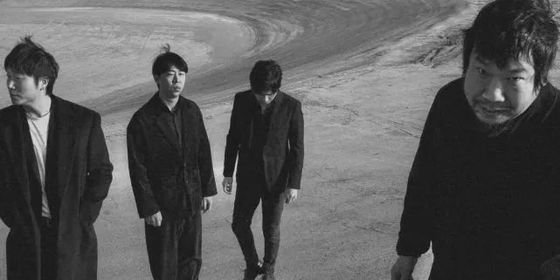One of China’s most influential pop singers comes of age with her first solo album since she stopped recording with girl group S.H.E.
In the early 2000s, the pop girl trio S.H.E fanned the flames of Chinese pop to heights never before seen, armed with a combination of bubblegum lyrics and idol-theatrics. Taking notes from the Destiny’s Child playbook, S.H.E.’s subsequent 12 albums made them the face of female Mando-pop for a generation of young music listeners.
Fast forward more than two decades from the release of Girl’s Dorm, the trio’s debut album, and the three singers who lent their initials to the band's name have gone their separate ways (though S.H.E. has not officially disbanded, their contract was not renewed by their management agency HIM International in 2018). They have largely reinvented themselves as actresses, solo artists, fashion icons, and industry trendsetters.
Enter Hebe Tien, the “H” of S.H.E., with her first solo album since she stopped recording with the group that made her famous (and her fifth solo album overall). Time Will Tell, released in September 2020, garnered her the coveted Best Female Vocal Album at the 32nd Golden Melody Awards in late August this year but also drew controversy for its style, or overarching lack thereof.
While these criticisms fairly call out the album’s lack of commercial mainstream appeal, Time Will Tell successfully demonstrates two things: first, that Hebe, now better known as Tien Fu-Chen (田馥甄), has moved on from S.H.E.; and second, that what she has to offer as a soloist is unconventional and complex, a pastiche of themes and musical ideas that evoke the memory of a person, seen through their own older and wiser eyes. More than anything, Time Will Tell seems to say: “I’m not the person I used to be.”
While throughout her career as a member of S.H.E and as a solo artist, Tien has stayed safely inside the confines of mainstream pop music, Time Will Tell establishes a new identity for herself as an artist who isn’t afraid to go against the grain. Gone is the bubblegum electro-pop idol that drew hordes of young concertgoers to S.H.E’s four world tours; gone is the girlish laughter and naivete of a young female icon who, along with her “dorm-mates,” shattered concert attendance records for a female pop group in Asia. Before us stands a more mature woman, now 38 years old, who is finally ready to open up: “I will show you my soul,” she sings in “A Song for You (或是一首歌).”













